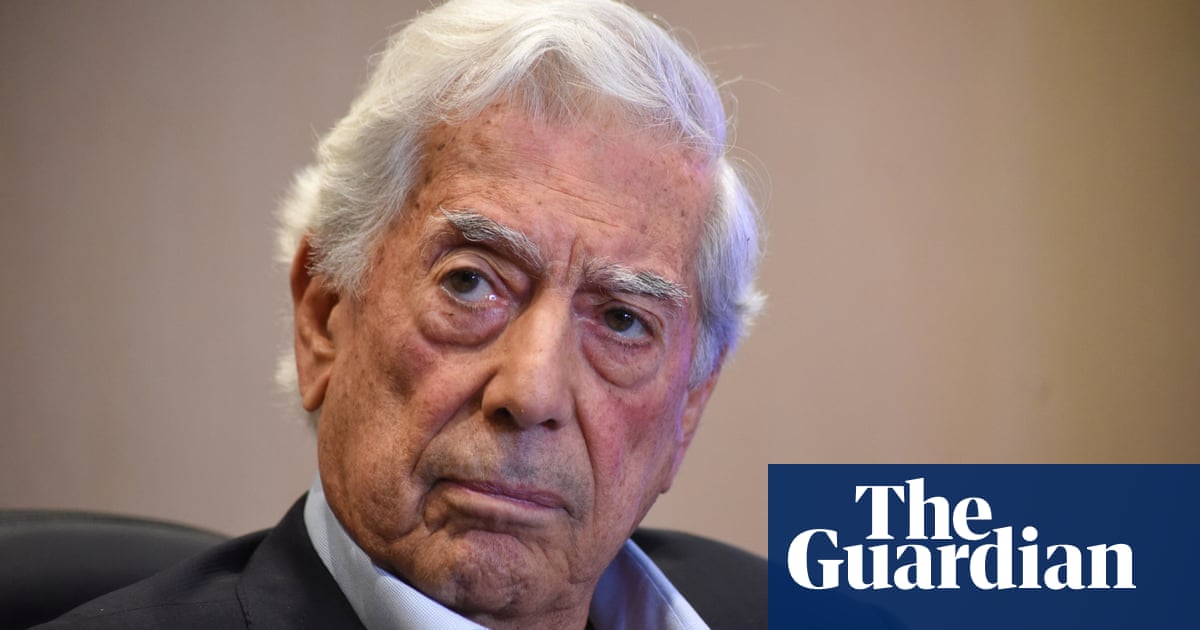
Peru’s best-known living writer, the Nobel prize-winning author Mario Vargas Llosa, has announced that his seven-decade literary career is coming to an end and that his latest novel will be his last.
In a postscript to the new book, Le dedico mi silencio (I Give You My Silence), the 87-year-old novelist writes: “I think I’ve finished this book. I’d now like to write an essay on [Jean-Paul] Sartre, who was my teacher as a young man. It will be the last thing I write.”
Le dedico mi silencio has been described as a love letter to Peru and to música criolla, the country’s distinctive blend of European waltzes with Afro-Peruvian and Andean influences.
In interviews with Spanish media on Thursday, the writer said that while he felt he did not have enough time left to deliver a 21st novel, he hoped to carry on writing and was set on finishing his Sartre essay.
“I’m 87 and, although I’m an optimist, I don’t think I’ll live long enough to work on a new novel, especially because it takes me three or four years to write one,” he told La Vanguardia. “But I’ll never stop working and I hope that I’ll have the strength to carry on until the end.”
Vargas Llosa, who lives in Madrid and has dual Peruvian and Spanish citizenship, is the last surviving member of the Latin American literary phenomenon known as el boom, the 1960s and 1970s cultural explosion that introduced the world to the writings of Gabriel García Márquez, Carlos Fuentes, Julio Cortázar and many others.
Since the publication in 1963 of his first book, La ciudad y los perros – in which he used the brutal Lima military academy he had attended in the early 1950s as a microcosm of a Peru beset by racial, socioeconomic and geographical divides – Vargas Llosa has chronicled the uses and abuses of power, be it political, military, racial, economic, social or sexual.
Vargas Llosa also said that while “gossipy” interest in his private affairs – not least his recent seven-year relationship with the socialite Isabel Preysler – had intruded on his life, he was neither “bothered or offended by it”.
“The important thing for me will always be the novels and essays and the culture and liberal ideas I’ve spent years defending,” he told a group of journalists. “People who are clear about those priorities don’t pay attention to the nonsense that certain elements of the press write about my life, and which is frequently made up.”
The writer, who was defeated in his attempt to become the president of Peru in 1990 by Alberto Fujimori, has remained outspoken about politics.
Two years ago, he reluctantly endorsed Keiko Fujimori – the daughter of his disgraced, authoritarian and now imprisoned former adversary – in her failed effort to become Peru’s next president, saying she was “the lesser of two evils” when compared with her rival, the far-left but socially conservative union leader and teacher Pedro Castillo.
In the run-up to Brazil’s general election last year, he expressed his preference for Jair Bolsonaro over Luiz Inácio Lula da Silva.
“The Bolsonaro case is a very difficult one,” he said. “Bolsonaro’s clowning around is very difficult for a liberal to accept. But now, between Bolsonaro and Lula, I of course prefer Bolsonaro. Even with Bolsonaro’s foolishness, he’s not Lula.”
Awarding Vargas Llosa the Nobel prize for literature in 2010, the committee said it had chosen the writer “for his cartography of structures of power and his trenchant images of the individual’s resistance, revolt and defeat”.
